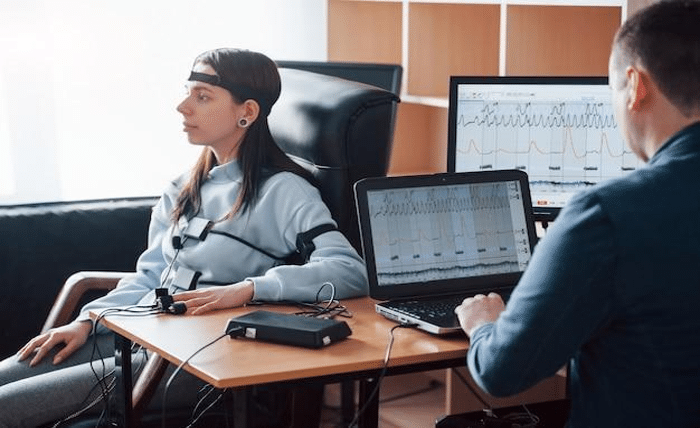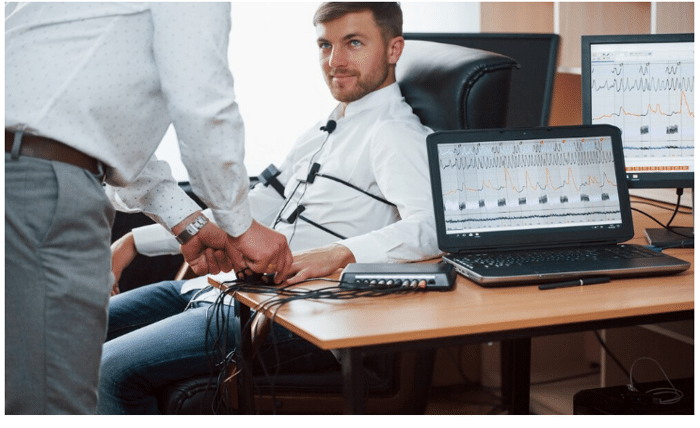
Telling the truth is usually easy, but sometimes words alone are not enough. In certain moments, people want clear proof that the truth is absolute and cannot be doubted. This is when a lie detector test becomes essential.
A lie detector test, also known as a polygraph, is a special instrument that measures changes in your body while you answer questions. It records your heartbeat, breathing, and sweating to establish a physiological baseline. Because of this, many people feel nervous before the test, even when they know they are telling the truth. That feeling is entirely normal.
If you are preparing to take a test, it helps to understand the process before you walk in. Knowing what will happen can make you feel calmer and more confident. It also prepares you for what to expect before, during, and after the exam.
Here are 10 important things to know before you take a lie detector test.
1. The Test Looks At Your Body, Not Your Words
When most people think about a lie detector test, they imagine it simply recording answers. However, the test goes much deeper than words. It carefully observes how your body reacts while you speak.
The machine tracks changes in your heartbeat, breathing, and even sweating during the process. These physical signals can shift when someone is untruthful, and the polygraph is designed to notice even the most minor changes.
Of course, this does not mean the machine can read your mind. Instead, it focuses only on the natural signs of stress that often appear when a person lies. That is why staying calm and answering questions naturally is so essential.

2. Examiner Plays A Big Role
When it comes to a lie detector test, the examiner’s role is significant. A skilled examiner knows how to ask questions clearly and fairly. They also know how to create a calm environment so that you feel more relaxed. Their training and approach can make the entire test more accurate and reliable.
3. Accuracy Is High, But Not Perfect
It is natural to wonder whether a lie detector test is always correct. The truth is that the accuracy rate is very high, but it is not flawless. Research shows that results can be about 90 to 95 percent accurate when the test is carried out correctly. That level of accuracy is strong, but it still leaves a slight chance for error.
These errors can happen for different reasons. Sometimes the test is not performed correctly, or the questions may not be designed well. Accuracy also depends on the examiner’s skill and how the examinee responds honestly.
4. The Test Is Done Quickly
A lie detector test does not take very long. In most cases, the entire process is finished within about 1.5 to 2.5 hours. This is enough time for the examiner to set up the equipment, ask the questions, and review the results without making the experience feel drawn out.
Because the process is straightforward and efficient, many people are surprised by how quickly it is completed. Knowing that the test is usually over quickly can help you feel more relaxed before it even begins.

5. You Cannot Trick the Test
Some think they can cheat a lie detector test by controlling their body. They may try to change their breathing, tense their muscles, or use tricks they read about online. The truth is, these methods rarely work.
Examiners are trained to spot signs of cheating. If they notice you trying to control your body unusually, it can affect your results. The best approach is to be open, calm, and truthful. That way, the test reflects your real answers.
6. You Will Answer Different Types Of Questions
A lie detector test does not only ask about the issue at hand. The examiner will also ask simple questions, like your name or the day of the week. These are called control questions. They help the examiner understand your normal body responses.
Then, the examiner will ask the real questions about the tested topic. The examiner can tell when your body shows stress by comparing your reactions to both questions. Knowing this in advance helps you understand why some questions may feel unrelated.
7. Nervousness Does Not Equal Lying
Almost everyone feels nervous before a lie detector test. Your body may show signs of stress even if you are telling the truth. The good news is that examiners know this. They can tell the difference between normal nerves and reactions linked to lying.
Do not worry if your hands feel sweaty or your heart beats faster. That happens to many people. The examiner expects it. Staying calm and focusing on answering honestly is the best way to handle nervousness.
8. The Results Go To The Requesting Party
Once the lie detector test is complete, the results are not usually given directly to the examinee. Instead, they are sent to the person or organization that requested the test. This ensures the process stays fair and that the information is handled properly.
The examiner’s role is to conduct the test and provide the findings. What happens after that depends on the agreement made before the test begins. Knowing this in advance helps avoid confusion and clarifies where the results will go.
9. It Is Used For Many Reasons
People take lie detector tests for many different situations. Some take them for personal reasons, like proving honesty in a relationship. Others take them for legal matters, work issues, or immigration cases.
The process is always handled with care because it is used in so many areas. No matter the reason, the goal is to find the truth. That is why trained examiners take the test seriously, no matter the setting.
10. Choosing A Trusted Service Matters Most
Perhaps the most important thing to know is that not all services are identical. Some people claim to offer cheap or “quick” lie detector tests, but they may not be real. A true polygraph test requires training, skill, and professional equipment.
Using a trusted provider gives you peace of mind. This ensures you get accurate, honest results you can rely on.
Final Thought
A lie detector test can feel intimidating, but it does not have to be. The key is to understand how it works and what to expect. It measures your body, not your thoughts. It is run by trained examiners who know the difference between nerves and lies.
The test takes time, cannot be tricked, and can provide clear written results. The most crucial step is choosing a trusted provider. With a professional service, you can feel confident that the process is fair and accurate.




